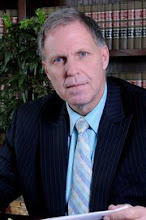DALLAS -- The recent sweep of public-intoxication arrests inside North Texas bars elicited a barrage of comments and questions of fairness from area residents.
The Texas Alcoholic Beverage Commission and Irving police recently conducted sweeps of 36 bars and arrested about 30 people on charges of public intoxication after subjecting some bar patrons to field sobriety tests. The patrons were selected for the sobriety tests after agents determined the individuals posed an alleged risk to themselves or the public.
TABC representatives said the arrests were meant to prevent drunken driving. Viewers of NBC 5 e-mailed the station and wanted to know if the arrests were legal. A local defense attorney said the cases contain merit.
"Anybody out there who is drinking needs to be aware that you have to drink responsibly, even if you're not driving," criminal defense attorney Barry Sorrels said. "If you're inside a bar, you could be arrested."
Texas law states that anyone who is drunk in public and poses a danger to themselves or others can be arrested regardless of whether they were inside a restaurant or bar, or on a city street.
Sorrels said the key to the law lies in the potential danger. He said it is not illegal to be intoxicated in public. The gray area comes in determining the degree of risk, Sorrels said.
"If (the) TABC is going to adopt this as a get-tough policy, they have to be fair on who they arrest," Sorrels said.
Three people caught in the recent sweep were arrested at a bar inside a hotel at which they were registered guests. All three said they had no intention of driving.
"It's no defense if you're staying at a hotel where you were publicly intoxicated at a bar," Sorrels said.
COMMENT BY DAVID SLOANE: Perhaps Mr. Sorrels should find another practice area of the law. Public Intoxication is the most widely abused criminal statute by police. For someone to be LAWFULLY arrested for public intoxication, they MUST be SO intoxicated they pose a risk to their safety or others. (A much higher level of intoxication than required for DWI!) A mere buzz won't do! Also, how can someone that is even extremely intoxicated pose a danger to themselves or others if they are in-tow by a sober person, or as in this case so readily dismissed by Mr. Sorrels, staying in a hotel where the bar is located and they will never be setting foot out on the street? Perhaps NBC5i should be seeking comments from attorneys who are a little better informed of the criminal statutes!
Wednesday, March 21, 2007
Subscribe to:
Post Comments (Atom)


No comments:
Post a Comment